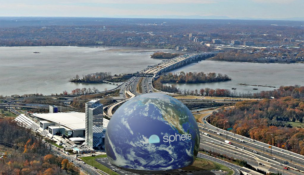Rolling with the punches
Meeting planners adjust in pandemic’s second year
Rolling with the punches
Meeting planners adjust in pandemic’s second year
Flexibility is once again the name of the game for meeting planners in 2021.
In 2020, most planners’ clients postponed or canceled conferences, while others decided to go virtual instead of meeting in person. This time around, it’s somewhat safer to meet due to COVID-19 vaccines, but outbreaks are still occurring in Virginia because of the delta variant of the coronavirus.
Still, says Marty Malloy, principal and co-founder of Henrico County-based Convention Connections Inc., “We’re creatures of wanting to interact and meet. All of our clients want to meet and get back together, so that’s extremely encouraging.”
Since April, CCI has organized events in Orlando, Florida; Austin, Texas; New Orleans and Nashville, with 10 more events scheduled for the rest of 2021 and about 50 more next year.
Laurie Campbell, president of Meeting Professionals International’s Virginia chapter, echoes Malloy’s opinion.
“People are ready to get back together,” she says. “I think moving forward most people want to see a relaxation of any kind of restrictions, but they’re still respectful of those people who are timid or still concerned about exposure or anything like that.”
Also, companies and organizations have to consider costs when planning hybrid meetings, she notes. Virtual meetings have the potential to increase attendance, but for now, the technology required increases the expense of conferences, says Campbell, senior director of sales and marketing of Newport Hospitality Group, a Williamsburg-based hotel management company. However, she does predict that virtual meetings will eventually become standard and less expensive to produce.
Today, notes Malloy, the tricky part of planning is keeping up with varying state and city ordinances regarding pandemic safety measures. One event that CCI had planned for July in New Orleans originally had a capacity limit of 250, but when the city increased capacity limits, CCI had to rapidly plan for more people. “The ball moves pretty quickly,” he says.
Campbell echoes that need for flexibility. “As we get a new announcement from every governor, then you have to be ready to bend,” she says. “As the hotel or the venue comes up with a situation that they need you to work with them on, then you’ve got to be able to bend.”
Individual venues are operating differently within the rules as well, so meeting planners need to be ready to adapt to new requirements. Conference and meeting host organizations also have differing guidelines, such as requiring masks or social distancing.
Another issue is the pent-up demand for meeting spaces. Everybody wants to have the conferences that they couldn’t hold last year and to get back to their normal meeting schedules, Malloy says. So, booking is competitive.
One of Malloy’s biggest clients, CrimeCon, a convention for true crime aficionados, was originally booked at the Orlando World Center Marriott in 2020. Although the organizers were able to hold this year’s CrimeCon as scheduled in Austin, Malloy was not able to book the Orlando center again until 2023.
The ongoing national labor shortage also has limited availability and services at some conference hotels. Joblist, a workplace website, released the results of a survey in July finding that 69% of former hospitality workers responded that they had no intention of returning to the industry.
Campbell says she didn’t see the labor shortage having a direct effect on MPI’s conference at the Richmond Marriott earlier this year but adds that it took an “all hands on deck” attitude, with all staff — including hotel managers — stepping in to help.
“It’s a bit like the duck on the water — you don’t know what the legs are doing, but it looks so smooth up top, which is what our industry is all about,” she says.
And although some hotels are seeing cancellations or slowing demand in response to the delta-related spike in COVID cases late this summer, Campbell and Malloy say plenty of organizations and businesses are still resolved to meet in person as planned.
People seem to have accepted that some risk is part of the deal, the planners agree. Malloy points to fans who have returned to attending sporting events and concerts.
“As a meeting planner, you’ve got to roll with the punches,” Campbell says. “What we do have to realize is that [COVID] is going to be with us probably forever. We just have to learn how to work with it and work around it, like we do everything else.”♣
T

















